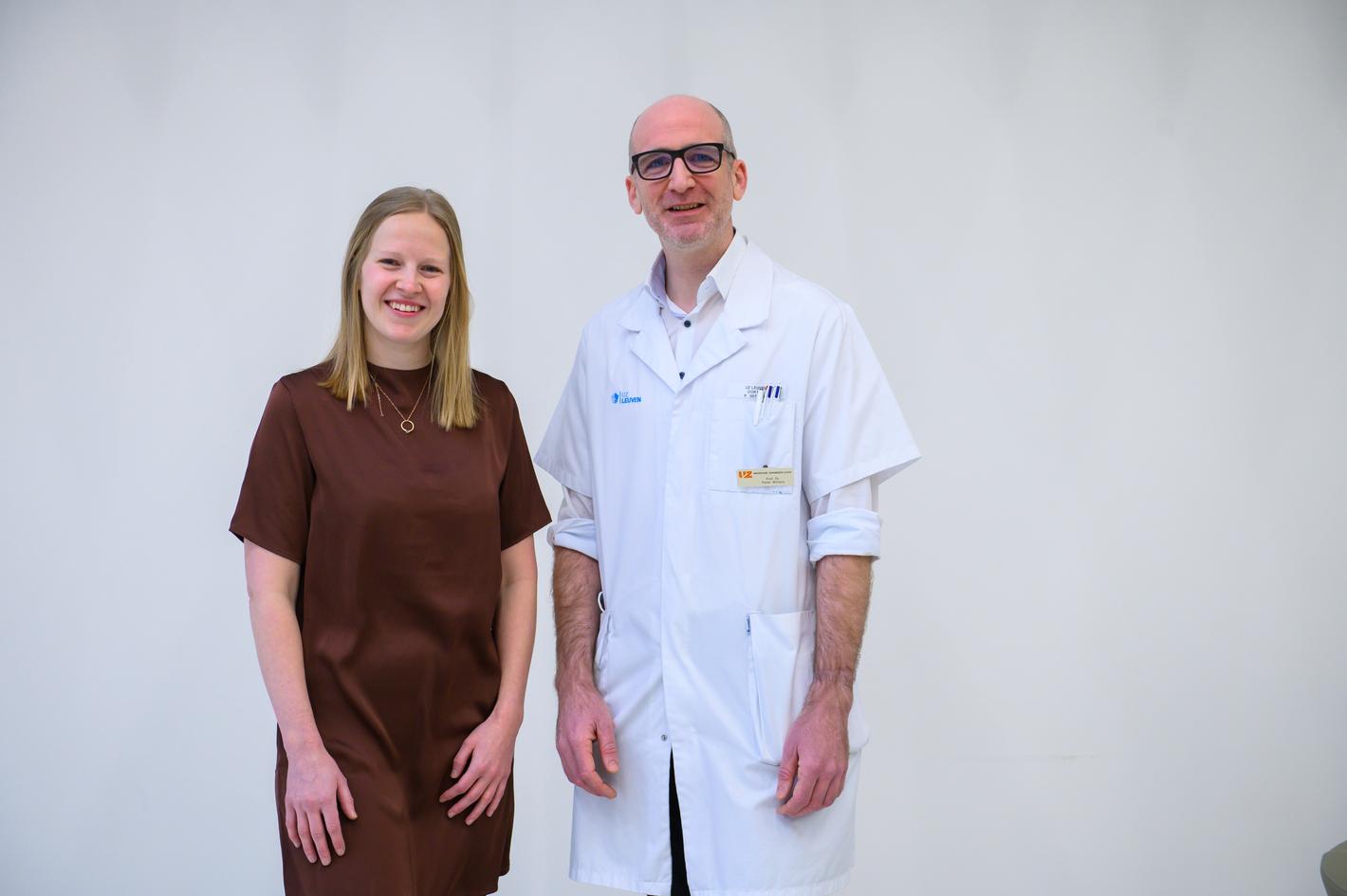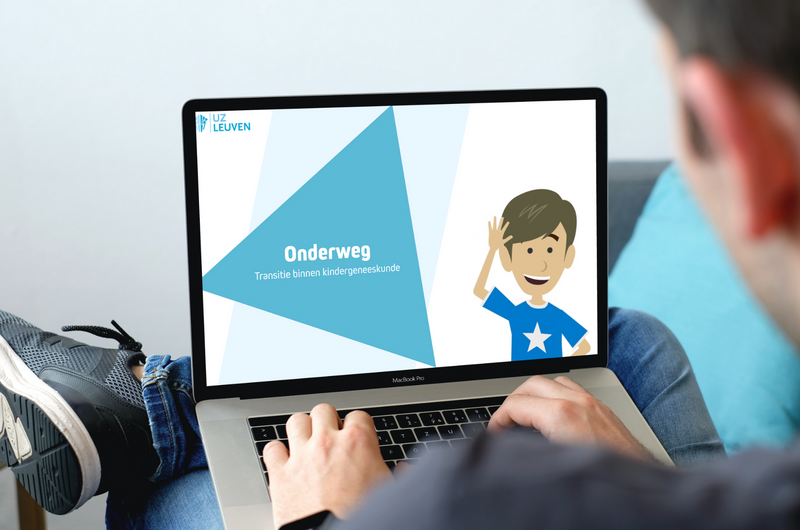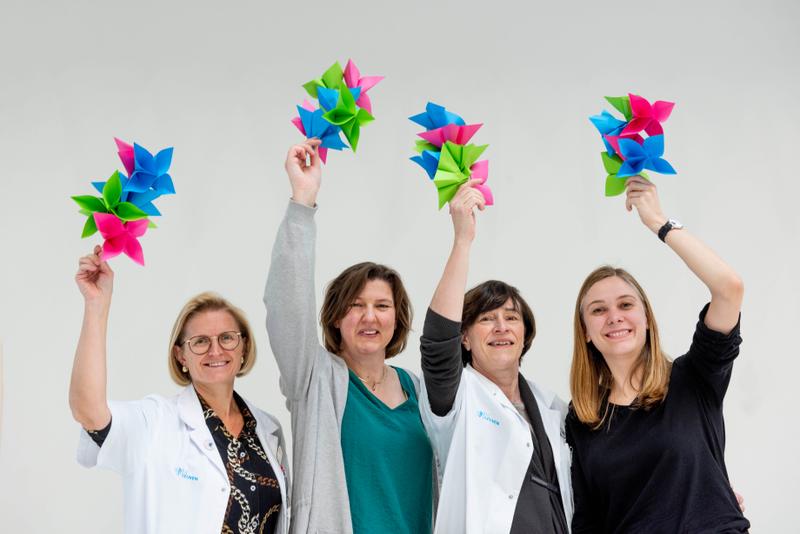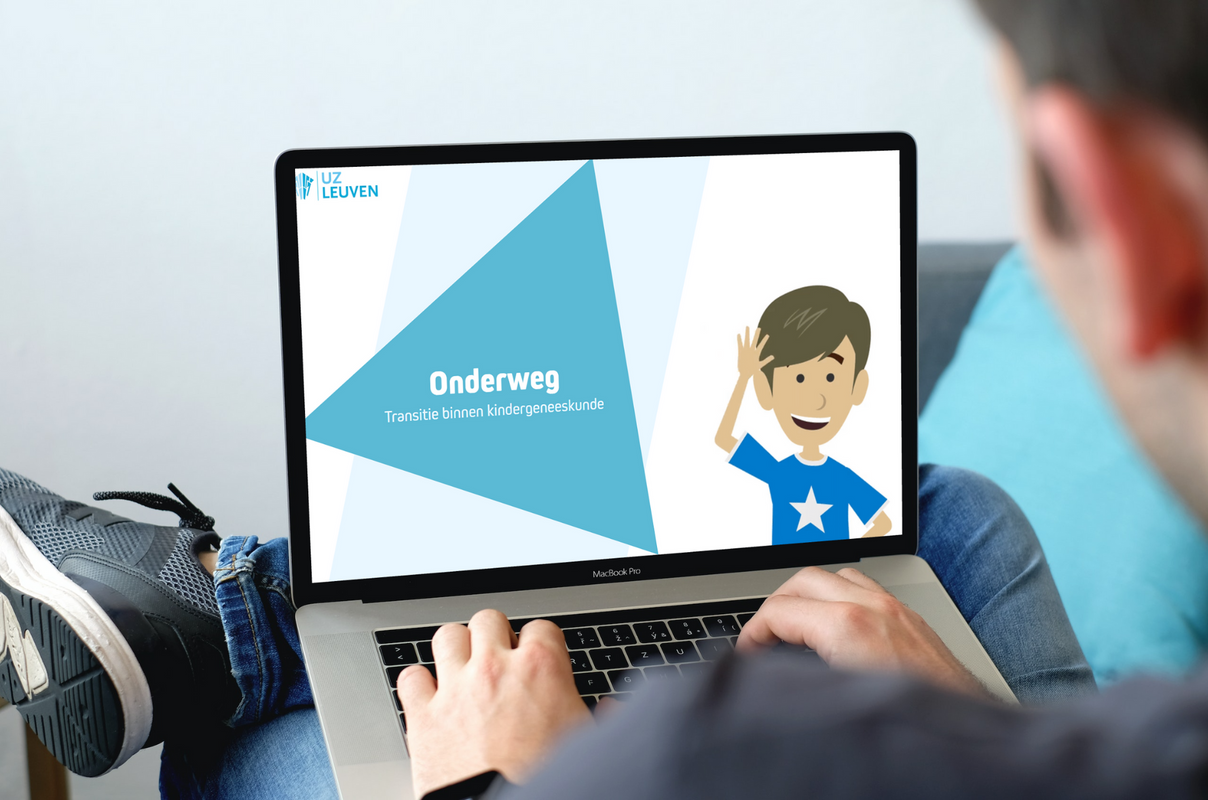E-learnings made to measure
When a child gradually becomes an adult, it is an intense and turbulent period anyway. For children and youngsters with a chronical illness, such a diabetes, cystic fibrosis or a rare disease, this also includes the transition. In a nutshell, transition is gradually starting to deal with your disease independently, both at home and in the hospital. This is ultimately where you make the step from paediatric to adult care.
For those children and youngsters and their parents there are four interactive e-learnings that give extra support during this transition process and include tips and tricks, personal testimonials and information about a wide variety of themes. Every e-learning is aimed at a specific target group (12-13 years, 14-15 years, 16-18 years and parents) and can be viewed digitally when and wherever you want.
Start at an early age

Psychologist Janne Houben and paediatrician prof. dr. Peter Witters
Professor Peter Witters, kinderarts: “Transition is the process where children and youngsters gradually learn to take responsibility for themselves. It is important for them to actively know what their disease includes and understand why they have to take medication or have to follow a specific type of diet. It's best to start this at an early age.”
Around the age of 18 there is the transition from a familiar to a new care team. Psychologist Janne Houben: “Chronically ill children are often being monitored by the paediatric team as early as 1-2 years old. Over the years, the family will have bonded with a fixed team of care providers. This makes for a challenging and difficult step to a completely new team.”
Different approach
“At a certain time and step by step, youngsters need a different approach”, says Janne Houben, “both medically and in terms of the social environment they end up in. Which is why the transition, the preparation for all aspects of young adulthood, is such an important thing to consider.”
Parents play an important part: they learn how to hang on their child in a different way.Janne Houben, psychologist
“One of the biggest challenges is that youngsters don't have an adult brain yet, but rather what we call an 'adolescent brain'. The part that can plan, organise and think ahead, has not fully matured. For this they need support. Parent play an important part here. They end up more and more on the side-lines, but remain involved. They learn how to hold on to their child in a different way. Which is why there is a separate e-learning for them too.”
Testimonials from patients
The e-learnings are specifically aimed at all children and youngsters with a chronic disease or disorder. The development was done by a multidisciplinary team, from doctors to socials workers and psychologists, and the design support came from The Learning Hub.
The input from the target audience was equally essential: a diverse patient group of children, youngsters and parents tested the pilot version in different stages. In the e-learnings, a couple of patients and parents talk about their personal experiences. Enkele patiënten en ouders vertellen in de e-learnings over hun persoonlijke ervaringen.
The better the transition process, the better the outcome for the adult patient.Prof. dr. Peter Witters, paediatrician
“Obviously an e-learning will not replace the support the children and youngsters get in their care programme”, says professor Witters. “The objective, though, is to give them tools they can use to get started on their own. The better the transitions process, the better the outcome for the adult patient.”
Discover the e-learnings
Get started with the e-learnings yourself.
- Every learning takes about 25 minutes.
- All answers to the questions and statements are completely anonymous and are not being saved.

Rare Disease Day
The last day of February is Rare Disease Day. As the largest university hospital with the rare diseases function, UZ Leuven is committed to providing patients with the most specialised care and a framework. This is why the hospital strongly invests in (inter)nationale networks and pioneering research.

